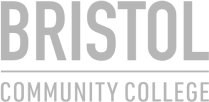PRACTICE TIERS DEPARTMENT KSAs
 Foundational
Foundational
Knowledge
– Recognizing the context and focus of ARE initiatives in the unit
Skills
– Being aware of dissonance and discrepancy as opportunities for deeper group inquiry into ARE
Actions
– Being deliberate and intentional about collective staff related ARE efforts
 Intermediate
Intermediate
Knowledge
– Team sense-making and prioritizing actions based on understanding the reality and impact of ARE in the workplace
Skills
– Beyond awareness, the group recognizing the impacts of implicit bias and microaggressions as structural/ systemic barriers and obstacles in the immediate work environment
Actions
– Working to collectively identify better progress and outcomes to meet ALL learners’ needs
 Advanced
Advanced
Knowledge
– Having a strong and concrete understanding of what ARE looks like and being clear about what needs to change and what doesn’t in order to achieve ARE in the classroom
Skills
– Continuous examination of the data for evidence of what is or is not working for students; identifying where we have the capability and capacity to improve in order to achieve racial equity; checking in on learners’ progress and identifying and acquiring the required support and resources to effectively work towards ARE in the classroom
Actions
– Being determined to achieve equitable progress and outcomes for all students
– Being focused on ensuring all learners have equitable access to support and opportunities to learn
– Recognizing that addressing ARE issues is crucial for creating an inclusive and fair educational environment
INSTRUCTIONAL STAFF KSAs
 Foundational
Foundational
Knowledge:
– As an instructional leader(s) noticing and understanding how implicit bias and microaggressions as structural/ systemic barriers and obstacles are related to racial inequities and their influence in the department
Skills
– Scanning for and recognizing potential barriers to ARE, and knowing when to take a closer look at specific ARE matters impacting the department, including equity-minded incidents
Actions
– Identifying and understanding the problems or issues related to ARE, including implicit bias and microaggressions as structural/ systemic barriers and obstacles
 Intermediate
Intermediate
Knowledge
– Consideration of pedagogical and curricular practices (e.g., culturally appropriate, relevant, affirming) based on departmental evidence of what works in ARE teaching and learning context
Skills
– Assessing capability and capacity for instructional improvement and identifying external expertise if needed, including additional professional development/ training
Actions
– Identifying areas for departmental change and areas that are effective and don’t require change
 Advanced
Advanced
Knowledge
– Having a strong and concrete understanding of what ARE looks like and being clear about what needs to change and what doesn’t in order to achieve ARE in the classroom
Skills
– Continuous examination of the data for evidence of what is or is not working for students; identifying where we have the capability and capacity to improve in order to achieve racial equity; checking in on learners’ progress and identifying and acquiring the required support and resources to effectively work towards ARE in the classroom
Actions
– Being determined to achieve equitable progress and outcomes for all students
– Being focused on ensuring all learners have equitable access to support and opportunities to learn
– Recognizing that addressing ARE issues is crucial for creating an inclusive and fair educational environment
MANAGERS/LEADERS KSAs
 Foundational
Foundational
Knowledge
– Taking stock of current knowledge and understanding of ARE to understand the reality and impact of achieving racial equity (ARE) in the workplace
Skills
– Asking collective critical questions related to ARE teaching and learning in the department, and seeking different perspectives on ARE issues while maintaining a leader as learner focus and being open to new information about ARE
– Knowing when to be deliberate and intentional about ARE efforts as they relate to in the department
Actions
– Using existing tools to gather data on ARE to identify and understand the problems or issues related to ARE, including implicit bias and microaggressions as structural/ systemic barriers and obstacles
 Intermediate
Intermediate
Knowledge
– Evaluating adequacy of findings and addressing different interpretations of data, including data related to the impacts of implicit bias and microaggressions as structural/ systemic barriers and obstacles in the college or institutional context
Skills
– Scrutinizing data with an open mind and working with qualitative/ quantitative data
Actions
– Prioritizing resources to achieve equitable outcomes, including allocating resources to address ARE issues identified and considering magnitude of the desired change
 Advanced
Advanced
Knowledge
– Clearly identifying the problem department is trying to solve, knowing what the team or department aims to achieve, considering the goals of addressing and mitigating the impacts
Skills
– Knowing how to use systems, processes, and tools in place to track progress and impact
– Transparently managing progress; and identifying and acquiring required support and resource needed to pursue racial equity in the department
Actions
– Clearly identifying, communicating, and pursuing the actions for the department
– Setting up and utilizing feedback channels to gather input from staff and instructors; and ensuring all department employees become learners making consistent progress towards ARE





